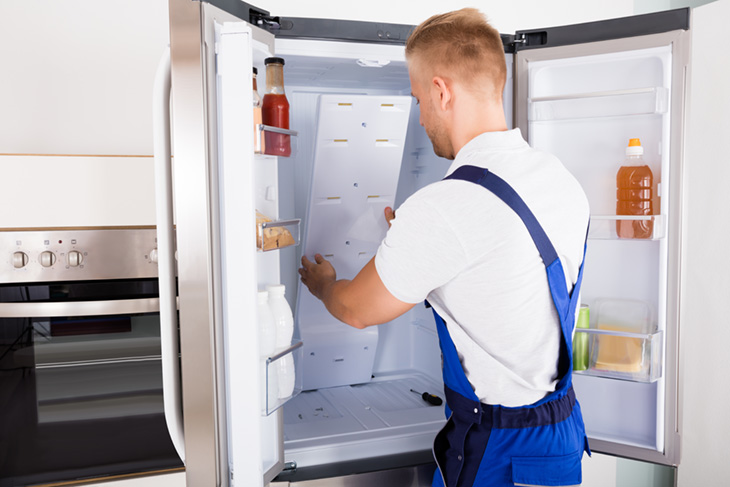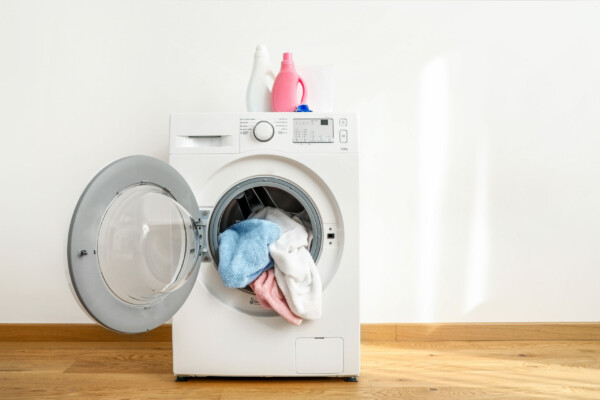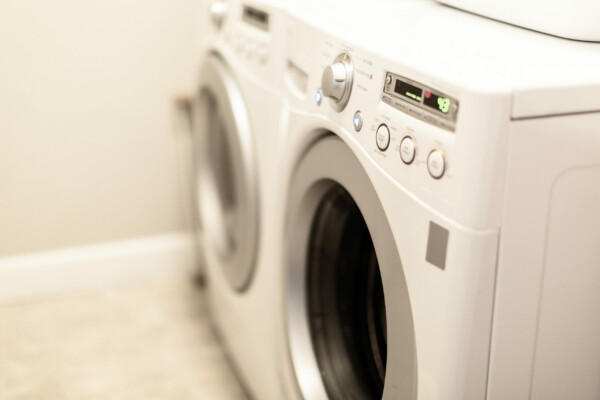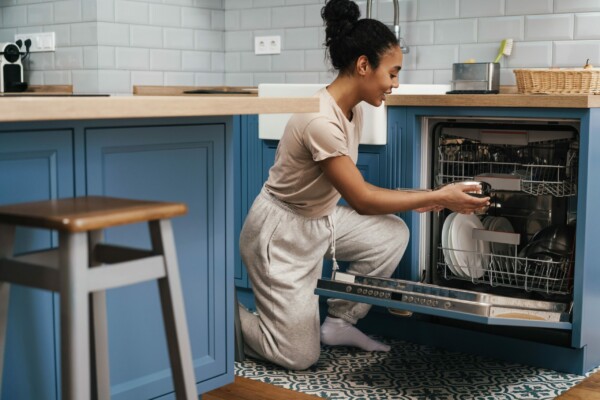LG Refrigerator Repair and Diagnostic Fix
A properly operating refrigerator is crucial for the whole family to feed and get everyone through the day. However, if something goes wrong, it is an emergency and requires professional help. Though the solution may be simple, and you can follow the guide to define the problem, special knowledge and tools are still necessary to avoid further damage to the unit or injury to the owner.
In case you have failed to find the issue, it is time to contact the refrigerator experts at Fix Appliances CA to troubleshoot any issue with your refrigeration appliance. But read the guide provided by our specialists based on their experience and learn how to make simple diagnostics and fix common refrigerator problems.
Understanding the Importance of Proper Cooling
Improper functioning cooling units may be dangerous and result in foodborne illnesses. Remember that keeping food in the temperature danger zone for a long time will make you sick when you eat.
Let’s look at the reasons why it is essential to get the staff cooled properly:
- Food safety – saving temperature will prevent harmful bacteria growth, ensure the freshness of your food, and help avoid its spoilage.
- Food quality – proper cooling preserves the nutritional value of food and slows down the degradation process, such as flavour and taste changes and spoilage as well.
- Energy efficiency – properly operating a fridge consumes less energy. Moreover, this helps to maintain the correct temperature and minimize energy wastage.
- Extended lifespan – improper cooling is a sign of more serious issues that require repairing, for example, the problems with the compressor, condenser, and fans. This will lead to wear and tear earlier than you can expect.
That is why our refrigerator experts underline that regular maintenance, proper temperature settings, and attention to any cooling problems will ensure the refrigerator operates longer and better. When you encounter any cooling issues, do not hesitate and look for a professional to resolve possible problems quickly.
Identifying Common Symptoms of Cooling Issues
Sometimes you may encounter different issues when it is not operating correctly, such as the light won’t turn on or your food isn’t cold enough., and others. All these can be signs to contact experts. It saves your time in defining the problem and prevents expensively unnecessary repairs.
Identifying common symptoms of cooling issues in a refrigerator can help you troubleshoot and address the problem promptly. Here are some signs to look out for:
- Warm interior;
- The freezer is not freezing properly;
- Excessive frost or ice buildup;
- Water leaks;
- Unusual weird noises;
- Temperature fluctuations;
- Increased energy consumption;
- Spoiled food or odours;
It’s important to mention that these symptoms may have different causes, and aid from skilled technicians will help to pinpoint and fix the specific issue.
Potential Causes of LG Refrigerator Cooling Problems
Many refrigerator issues will have simple fixes or at least a simple way to diagnose the problem, and you can find lots of troubleshooting steps in manuals or instructions for your cooling appliance. However, most problems require professional help. Below we described the possible causes why you encounter cooling issues with your refrigerator. No matter the brand of fridge you have, either LG, Samsung, Maytag or any other, the problems and consequences remain the same.
NB: Before taking any action, consider if the power has recently gone out or if a large amount of food has been added. If so, the temperature can take several hours to return to normal. Similarly, if the refrigerator has just been installed, it can take 24 hours to completely cool.
| Condenser Coil Issues | If the condenser coils are dirty or debris builds up on the coil, they won’t dissipate the heat effectively and will be unable to maintain the proper temperature. |
| Condenser Fan Motor | If the condenser fan motor is not working properly, the refrigerator won’t cool properly. To determine if the fan motor is defective, you should check the fan blade for obstructions, or the problem can be with continuity. |
| Evaporator Fan Malfunction | If the evaporator fan is not working, it will not circulate the cold air to the refrigerator compartment. The refrigerator will not get cold if this occurs, but the freezer does. The main causes that require replacing are a defective fan, continuity issues or excessive noise in the fan. |
| Temperature Control Thermostat Failure | If the temperature control thermostat is not working properly, it may prevent the refrigerant system from running. Here only knowledgeable technicians using special tools will define the problem and fix it, including replacing it, as soon as possible. |
| Defective Compressor | When the compressor is not working, the refrigerator won’t cool. The problem can be connected to the defective or damaged parts of the unit or the continuity between the electrical pins on the side of the compressor. In this case, it must be replaced by a licensed technician. |
Diagnostic Fixes and Repair Procedures
When a refrigerator is not cooling properly, we prepared several troubleshooting steps you can follow and try to fix the issue:
- Check the power supply: Ensure the refrigerator is properly plugged in and receiving power. Check the circuit breaker or fuse box to ensure no tripped breakers or blown fuses.
- Check the temperature settings: Make sure the temperature controls inside the refrigerator are set correctly, and verify the recommended settings according to manual instructions.
- Clean the condenser coils: Dirty condenser coils can restrict airflow and cause cooling issues. Thus, clean them using a vacuum cleaner or a brush specifically designed for this purpose. NB: unplug the refrigerator before cleaning.
- Check the door seals: Inspect the door gaskets for any signs of damage or gaps. Replace the seals if you have found any damage.
- Ensure proper ventilation: Make sure the refrigerator has adequate space around it for proper air circulation.
- Check the evaporator fan: Open the freezer compartment and listen for the sound of the evaporator fan running. A faulty fan can prevent cold air from properly circulating.
Test the defrost system: Look for excessive ice build-up on the evaporator coils. The defrost system may be malfunctioning. In this case, inspecting the defrost heater, defrost thermostat, and defrost timer/control board is necessary. - Inspect the compressor: The compressor is a vital component responsible for cooling. If you hear a clicking sound coming from the back of the refrigerator, it could indicate a problem with the compressor. The best is to call a professional technician for repair or replacement.
- Check the temperature sensor: Some refrigerators have a temperature sensor that may need calibration or replacement. Refer to the user manual, contact the manufacturer for specific instructions on testing and troubleshooting the sensor, or contact the refrigerator experts to define and resolve the problem.
Prevention and Maintenance Tips
Prevention and regular maintenance can help prolong the lifespan of your refrigerator and reduce the chances of major repairs. Here are some tips to keep your fridge in good working condition:
- Clean the condenser coils: Dust and debris can accumulate on the condenser coils, causing the refrigerator to work harder and potentially leading to cooling problems. Clean the coils regularly, usually located at the back or bottom of the fridge, using a vacuum cleaner or a coil brush.
- Check and maintain proper temperature settings: Set the refrigerator and freezer compartments to the recommended temperature settings as per the manufacturer’s instructions. Extreme temperatures can affect the appliance’s efficiency and lead to food spoilage.
- Keep the refrigerator well-ventilated: Ensure that there is sufficient space around the refrigerator for proper air circulation. Avoid blocking the vents at the back or inside the fridge, as restricted airflow can impact cooling performance.
- Clean and check the door seals/gaskets: Periodically clean the door seals with mild detergent to remove dirt and food particles. Inspect the seals for any signs of damage or wear. Replace faulty seals to maintain an airtight closure, preventing warm air infiltration and energy loss.
- Avoid overloading the refrigerator: Overloading the fridge with too much food can obstruct cool air circulation. This can strain the compressor and reduce cooling efficiency. Maintain a reasonable amount of items in the fridge to ensure proper airflow.
- Clean spills and leaks promptly: Clean up any spills, leaks, or condensation inside the refrigerator as soon as possible. This prevents moisture buildup and the growth of mold or bacteria, which can affect both food quality and the refrigerator’s performance.
- Check and replace water filters: If your refrigerator has a water dispenser or ice maker, it likely has a water filter. Follow the manufacturer’s instructions to regularly check and replace the filter as recommended to maintain water quality and prevent clogs.
- Keep the refrigerator level: Ensure that the refrigerator is level to prevent strain on the compressor and maintain proper operation. Use a spirit level to check and adjust the levelling legs if necessary.
- Avoid placing hot or warm items in the fridge: Allow hot or warm food to cool down before placing it in the refrigerator. Introducing hot items can raise the internal temperature and make the fridge work harder to cool down, affecting energy efficiency.
- Schedule professional maintenance: Consider scheduling regular maintenance visits by a professional technician. They can inspect and service your refrigerator, check for potential issues, clean components, and ensure optimal performance.
By following these prevention and maintenance tips, you can help keep your refrigerator running efficiently, reduce the risk of breakdowns, and potentially save on repair costs in the long run.
When your refrigerator isn’t cold enough, you have to worry about food spoiling and wasting energy, and your fridge has to work overtime. So if you’ve done all you can to troubleshoot the problem using the suggested guide and it is still too warm, it might be time to call a refrigerator repair professional. Fix Appliances CA is trained to repair all major appliances, including your fridge, as soon as the same day.
Contact us to schedule the first visit to your place. Our representatives are available daily from 7:30 am to 9:00 am to take your call at 888-242-0777.
Date of page creation: June 06, 2023
Page update date: October 05, 2023
Ask a Question




